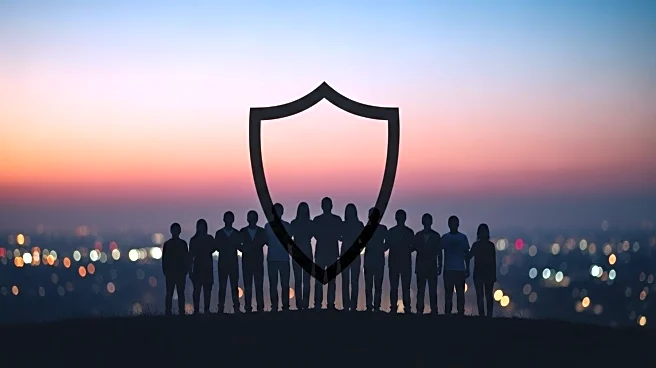What's Happening?
A grassroots initiative known as the People's Patrol has mobilized volunteers to actively confront immigration agents executing President Trump's intensified deportation policies. This movement is part of a broader resistance against the administration's immigration enforcement strategies. The People's Patrol aims to provide support and protection to individuals targeted by these operations, emphasizing community solidarity and direct action. The initiative reflects growing public dissent against federal immigration policies and highlights the role of local communities in advocating for immigrant rights.
Why It's Important?
The People's Patrol's actions underscore significant societal tensions surrounding immigration policy in the United States. As President Trump's administration continues to enforce strict deportation measures, grassroots movements like the People's Patrol represent a counterforce advocating for immigrant rights and community protection. This development is crucial as it highlights the divide between federal immigration policies and local community responses. The outcome of such confrontations could influence future immigration policy debates and shape public opinion on the role of federal enforcement versus community-based advocacy.
What's Next?
The People's Patrol and similar movements may continue to grow in response to ongoing federal immigration enforcement. This could lead to increased visibility and influence in shaping public discourse on immigration policy. Additionally, the federal government may respond with further measures to counteract these grassroots efforts, potentially escalating tensions. The situation warrants close monitoring as it could impact future legislative actions and the broader national conversation on immigration reform.
Beyond the Headlines
The emergence of the People's Patrol highlights deeper ethical and legal questions about the balance between national security and human rights. It raises concerns about the potential for civil disobedience and the legal ramifications for those involved in such resistance efforts. Furthermore, it reflects a cultural shift towards more active civic engagement and the willingness of communities to challenge federal authority in defense of vulnerable populations.








